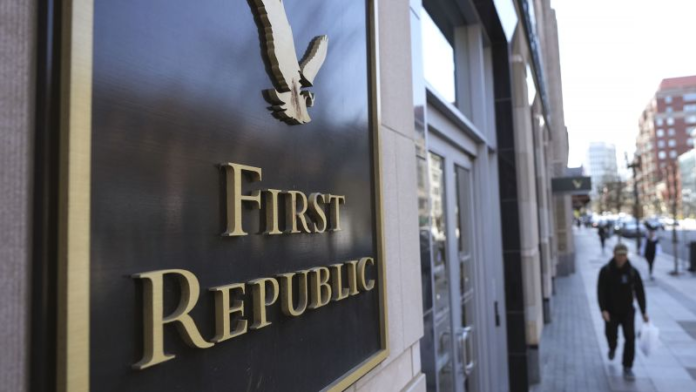New York CNN —
First Republic Bank was taken over by the Federal Deposit Insurance Corporation on Monday, with most of its assets sold to JPMorgan Chase.
Here’s where things stand for customers.
Will I lose any money?
No. Chase is assuming all deposits of First Republic customers.
“To protect depositors, the FDIC is entering into a purchase and assumption agreement with JPMorgan Chase Bank, National Association, Columbus, Ohio, to assume all of the deposits and substantially all of the assets of First Republic Bank,” the FDIC said in a statement.
First Republic customers’ deposits will continue to be FDIC-insured.
FDIC insurance covers up to $250,000 per depositor for each account ownership category. That means some customers may be insured for more than $250,000: Each account type is covered separately, so if a depositor had more than one type of account, each one is insured. Also, if more than one person owns an account jointly, each owner is covered up to $250,000.
“Deposits will continue to be insured by the FDIC, and customers do not need to change their banking relationship in order to retain their deposit insurance coverage up to applicable limits,” the FDIC said.
One quirk to note: If a First Republic customer already has Chase accounts, the transfer of their deposits to Chase will not count against their total balances at the bank initially.
“All transferred deposits will be separately insured from any accounts you may already have at JP Morgan Chase Bank, N.A. for at least six months,” the FDIC said.
How quickly can I access my money?
Immediately.
Should I start banking at Chase branches?
Not yet.
“Customers of First Republic Bank should continue to use their existing branch until they receive notice from JPMorgan Bank, National Association, that it has completed systems changes to allow other JPMorgan Chase (JPM) Bank, National Association, branches to process their accounts as well,” the FDIC said.
Will I still have access to banking services?
First Republic customers will have many of the same banking conveniences that they had before the bank was taken over.
“You may continue to use your checks and ATM/Debit card. Direct deposits like paychecks and Social Security benefits will continue as usual,” the FDIC said on its resource page for First Republic customers.
What if I have a loan through First Republic?
The FDIC notes that anyone with a loan from the bank should continue making payments as usual. There will be no change in the terms of your loan.
So what will change now that my account is being transferred to Chase?
Since you effectively are becoming a Chase customer, Chase will notify you if it plans to make any changes to the deposit rates on your checking, savings and other accounts such as certificates of deposit.
Other terms of your accounts may also eventually change.
For instance, the FDIC said, “you may withdraw your funds from any transferred account without an early withdrawal penalty until you enter into a new deposit agreement with JP Morgan Chase Bank, N.A. as long as the deposits are not pledged as collateral for loans.”




